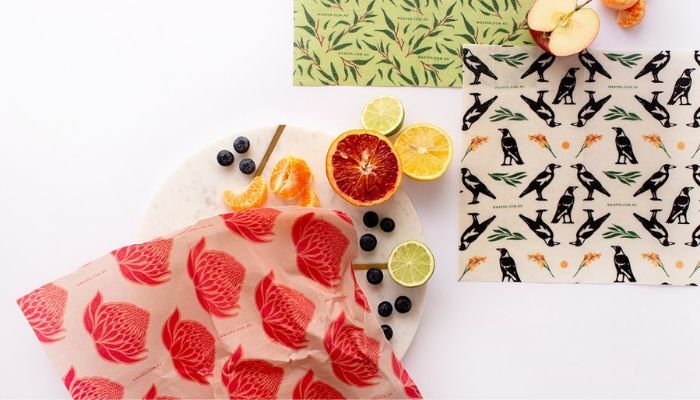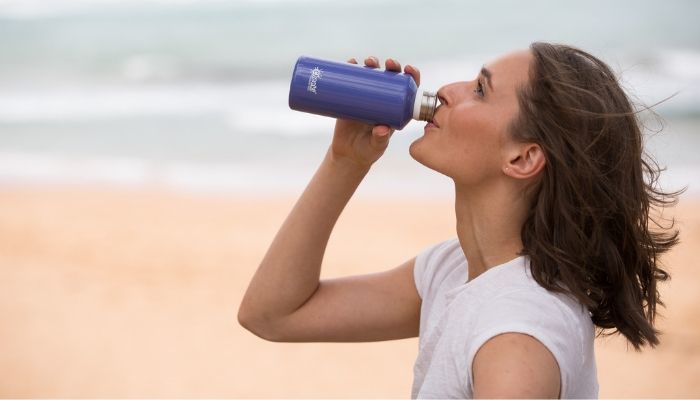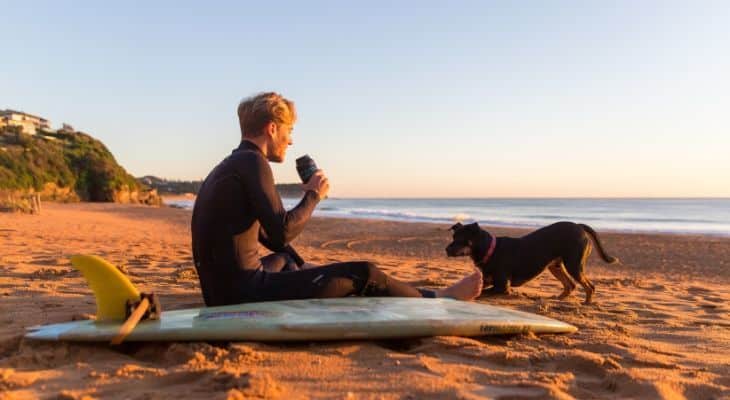The Quest to Go Plastic Free This July And Beyond
Image provided by Cheeki
Globally, enough plastic is thrown away every year to circle the earth four times, and even though many companies have now pledged to reduce the amount of plastic they are using for packaging and manufacturing, there’s still much more that needs to be done.
According to National Geographic Magazine since 1950 around 9.2 billion tonnes of plastic has now been produced with around 6.9 billion tonnes of that now classified as waste. A massive 91 per cent of that plastic has never been recycled.
In the lead up to Plastic Free July, this year there were many burgeoning businesses at the Naturally Good Expo 2019 showcasing a range of innovative products such as stainless-steel cups to wax food wraps designed to keep plastic use down.
“This year we were truly impressed with the array of products which are committed to sustainability,” says Jon Perry, group event director of Naturally Good Expo. “It’s encouraging that more people are now wanting to do their bit to preserve the planet by incorporating simple and achievable measures into their lives through smarter, better purchases.”

Photo Source: Wrappa
The Aussie push to go plastic free goes global
Plastic Free July, which is an Australian initiative, led by the Plastic Free Foundation, has now turned into a global movement. Each July, the campaign challenges millions of people worldwide to forgo using single-use plastics. Last year 120 million participants signed onto the website with many vowing to reduce plastic pollution beyond July.
Impressively so far participants say they have:
- Reduced their household waste on average by 76 kg per household per year
- Cut their use of recyclables (disposable packaging) on average by 28 kg per household per year
- Contributed to a total saving of 490 million kg of plastic waste each year
Major companies getting on board
Despite the long way we still have to go, happily, even major companies are now reducing the amount of plastic they are using. Addidas has now sold made (and sold) more than one million pairs of its shoes from reclaimed ocean plastic. Each shoe uses an average of 11 plastic bottles per pair.
Meanwhile, fellow shoe and apparel giant Nike says 71 percent of its footwear now contains materials made from recycled sneakers, plastic bottles and manufacturing scraps. The reconstituted material is also sold on to line running tracks, playgrounds, gym floors and carpet underlay. Patagonia has turned recycled polyester from plastic drink bottles into fleece and even haute couture label Stella McCartney features a backpack made from recycled plastic.

Photo Source: Cheeki
Show exhibitors impress with innovations
This year businesses Pargo, Cheeki and Caye Life proudly displayed their premium ranges of stainless-steel reusable drink bottles and cups. Astonishingly, Australians use and throw away a jaw-dropping 2,700,00 plastic coffee cups daily, which are for the most part not recyclable. “The show lifted awareness and distribution in a very positive way and was a great opportunity to promote new products and also get feedback on them,” report the Cheeki team. “The passion that the business owners and buyers have for sustainability and health is great to see. We’re motivated to protect our beautiful coastline, ocean and marine life from plastic pollution so they more we can get the word out the better.”
Elsewhere Pitch Fest winners The Swag had people intrigued by their unique vegetable and fruit fridge bags made out of multi layers of cotton. “Fresh produce is increasingly being sold plastic wrapped in polystyrene containers whish is not only phenomenally bad for the environment but also causes produce to sweat and rot faster,” says Swag founder Peita Pini. “Whereas The Swag allows produce to breathe and hydrate, therefore staying fresher for longer in the fridge. The reason I founded the business was because I really care about the planet, so I wanted to do something that contributed to less waste and less use of unnecessary man-made materials.”
Agreena also showed off their silicone reusable food wrap, that can be used repeatedly for wrapping, baking and sealing eliminating the need for traditional plastic clingwrap. Additionally, bees wax infused products were also popular such as the covers from Wrappa and those from Queen B. Beeswax is a natural, renewable product, making it a sustainable alternative to synthetic, mineral oil-based waxes and other products.
Naturally Good’s own mission to reduce plastic
As part of the commitment to reducing plastic, Naturally Good also organised for all name badges to be perforated which removed the need for plastic pockets. Expo visitors were also encouraged to take advantage of the free water refill stations sponsored by Unique Health Products. Situated in three different locations throughout the show, expo visitors stayed well-hydrated, and as a result saved 1,357 plastic bottles from being used and thrown away!
View this post on Instagram
-
Get your FREE ticket
- REGISTER FOR FREE
